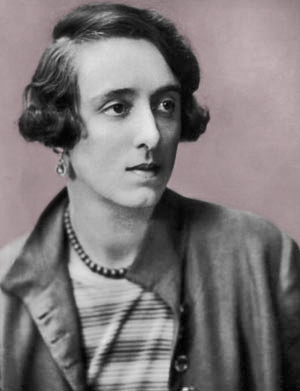
In May of 1926, Vita Sackville-West returned to England from a four-month-long expedition through Persia; by virtue of her marriage—her husband, Harold, was a diplomat—she had been required to attend the coronation of the Rezā Shāh in Tehran. The couple maintained an open relationship, both participating in same-sex relations. Below, Sackville-West responds to Virginia Woolf, who had asked her: “Tell me the difference between that emotion [of poetry] and the prose emotion? What drives you to one over the other?” The two were lovers at the time, a relationship which would serve as the basis for Woolf’s Orlando. In the months following this letter’s writing, Woolf and Sackville-West lived apart in their respective English villages of Rodmell and Sevenoaks Weald. By summer’s end their mutual feelings were flagging, and when it came time for Sackville to publish The Land in September, she dedicated the work to Dorothy Wellesley, a poet and Duchess of Wellington, over Woolf.
Long Barn, Weald Sevenoaks
Thursday 17 June 1926
Dear Mrs. Woolf
I must tell you how much I enjoyed my weekend with you…
Darling Virginia, you don’t know how happy I was.
I am sorry you should think me crafty. I don’t think I am half crafty enough.
About prose and poetry, and the difference between them. I don’t believe there is any, with all due respect to Coleridge. It is surely only a question of the different shape that words assume in the mind, not a question of drunkenness and sobriety. All too often the distinction leads people to think they may mumble inanities which would make them blush if written in good common English, but which they think fit to print if split up into lines. This alone shows that there isn’t any real difference. None of the definitions fit. Matthew Arnold says that poetry describes the flowing, not the fixed; why should not prose?
A brilliant gathering at Sibyl’s,—what you missed! The drawing room at Argyll House coruscated. Sibyl was, I thought, very stuff about you; evidently cross at being cheated of a star in her firmament. ‘If she could come up to London with you,’ she snapped, ‘she could have come here tonight.’ I drew a touching picture of your frailty; she sniffed. Molly McCarthy [sic] looked amused.
Now, having annoyed you (as I hope) by telling you what you missed and what bad odour you are in with her ladyship, I’ll tell you that I disenjoyed myself extremely; would have exchanged all the champagne in the cellar for a glass of Rodmell water; would have sent everybody flying with a kick. Sibyl tried to draw me about Persia; I turned sulky, wouldn’t be drawn, shan’t be asked again, and let Aldous Huxley have it all his own way as the only traveller. Then I came down here next day, composing on the way a very beautiful speech to be addressed to girl-guides; discovered on arrival that they were shop girls not girl-guides at all; had to improvise; was bunched with sweet peas; felt like Princess Mary, had to buy a lot of things I didn’t want; went to Knole and saw The Comedy of Errors played in the garden; and so home, feeling very miserable because I had lost you and because I had had a bad report about my mother. So I collected as many dogs as I could to take to bed with me; and rats at the doves during the night.
But this morning I thought of you writing away as hard as you could go, and that consoled me. I hope it was a true and right thought?
If you should feel inclined to write to me, send it to Sherfield Court, Sherfield on Loddon, Basingstoke where I go on Saturday after the eighty publishers. I shall expect to find that you have prepared a little store of trouble for me with Clive.
Desmond said suddenly to me, ‘I see that Clive is going as minister to Tehran.’ To me there is only one Clive. My world reeled.
I wish I were back at Rodmell. I wish you were coming here. Is it any good suggesting (you see that I am in a despondent mood,) that you should do so? It is very nice here, you know; but I expect you are busy. Only, it would be a nice refuge if you wanted to escape from London, and I would fetch you in the motor. In any case I shall see you on Friday? a damned long way off, too. Is this a dumb letter? You did spoil me so at Rodmell. I was terribly happy. Tell me how you are.
V.
From The Letters of Vita Sackville-West to Virginia Woolfe. Edited by Louise Desalvo and Mitchell Leaska. San Francisco: Cleis Press Inc, 2001. pp. 111-2.
FURTHER READING
Read “The Land” which Sackville-West wrote during her expedition through Persia.
Watch a short documentary on Woolf featuring Sackville-West’s son.
View a photograph of Woolf and Sackville-West taken in 1933.


